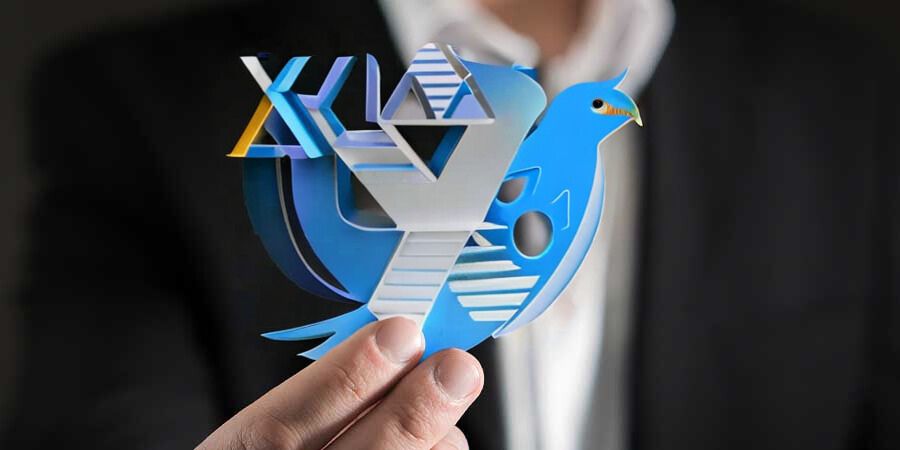In this article, we’ll look at the reasons behind the merger between Twitter and X Corp, Elon Musk’s ambitious vision for an “everything app,” and the key features that could transform the social media landscape.
Key Takeaways:
- X Corp has taken over Twitter, which suggests that Musk has bigger intentions for the platform.
- X could be inspired by Tencent’s WeChat, a Chinese super-app that offers a wide range of services.
- A blockchain-based platform and crypto functionality are potential components of Musk’s new social media vision.
- Musk has considered alternative revenue models, such as a subscription model and direct user payments.
- Free speech is likely to be a significant focus in Musk’s new platform.
- Eliminating bots and scam accounts is a priority for the billionaire’s social media plans.
A New Super-App on the Horizon
So, what’s the big idea behind this merger?
Well, it’s all about transforming Twitter into an all-in-one app that combines messaging, video chatting, gaming, and even shopping.
Musk has hinted that his inspiration comes from Tencent’s WeChat, a Chinese super-app that boasts an extensive range of services.
If you’re not familiar with WeChat, it’s a one-stop-shop for all your online needs in China.
The idea is to replicate this kind of functionality outside of China, and Twitter’s integration into X Corp is the first step towards achieving that.
Let’s examine the important aspects that Musk may bring to his upcoming social media platform.
Blockchain-Based Social Media Platform
It’s no secret that Elon Musk is a fan of cryptocurrencies like Bitcoin and Dogecoin.
So it’s not surprising that he’s considering a blockchain-based platform for his new social media venture.
Musk has even discussed the idea of a “Doge” social media platform with his younger brother, Kimbal Musk, in private texts that became public during a legal battle with Twitter.
In this proposed platform, users would pay a small amount to register their messages on the blockchain, effectively cutting out spam and bots.
Additionally, a massive real-time database would store permanent copies of messages and followers, accessible via a “Twitter-like app” on users’ phones.
With the integration of crypto functionality, Twitter could soon enable payments, a feature commonly found in super-apps like WeChat.
Rethinking Revenue Models
As we know, advertising constitutes the bulk of Twitter’s revenue.
But Musk isn’t a fan of ads.
Instead, he’s been vocal about exploring alternative revenue models for the platform, such as charging users for premium features or even for access to the site itself.
After acquiring Twitter, Musk began charging users for the coveted blue checkmark, demonstrating his commitment to finding new ways to monetize the platform.
Furthermore, Musk has expressed interest in fostering direct payments to content creators, building on Twitter’s existing “Tips” feature that allows users to pay others with Bitcoin.
“It’s important for content creators to have a revenue share,” Musk said at an “All-In” podcast event.
It’s evident that Musk envisions a platform where creators can profit from their work, and users can enjoy an ad-free experience.
Championing Free Speech
When it comes to free speech, Musk has strong opinions.
He often refers to Twitter as a “town square” and opposes censorship that goes beyond the law.
Musk has been critical of Twitter’s ban on some users, including former president Donald Trump, who he reinstated on the platform after acquiring the company.
It’s safe to assume that Musk’s new social media platform will prioritize free speech, allowing for a more open and diverse range of voices to be heard.
However, this approach may also present challenges in terms of attracting advertisers who may be hesitant to associate their brands with controversial content.
Combatting Bots and Scams
Another critical issue Musk aims to address in his new social media platform is the prevalence of scam accounts and bots on Twitter.
In fact, Musk has called bots on Twitter the “singlemost annoying problem” and made combating them a priority in his plans for the new platform.
During a TED 2022 interview, Musk cited the issue of bots and scams as the first thing he would change as Twitter’s new owner. Since taking over, he’s been relatively quiet on the subject, but it’s clear that tackling this problem remains a top priority.
Musk believes that implementing a subscription process for the platform will help eliminate “impersonation fraud” and other bot-related issues. By requiring users to pay a small fee, the platform can effectively reduce the number of fraudulent accounts and create a safer environment for genuine users.
Conclusion:
As Twitter merges with X Corp and Musk’s vision for an “everything app” comes into focus, the possibilities for the future of social media are endless.
From the development of a blockchain-based platform to rethinking revenue models and championing free speech, the new Twitter promises to be a game-changer.
While it remains to be seen how these ambitious plans will unfold, one thing is certain: the social media landscape is about to undergo a significant transformation.
As users eagerly await the new features and improvements that Musk’s “everything app” will bring, the anticipation continues to build.
Stay tuned as we follow the exciting developments of this groundbreaking merger and the birth of a new era in social media.
 Sections of this topic
Sections of this topic
















